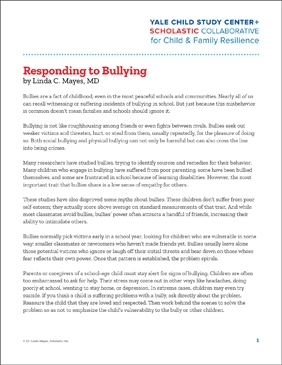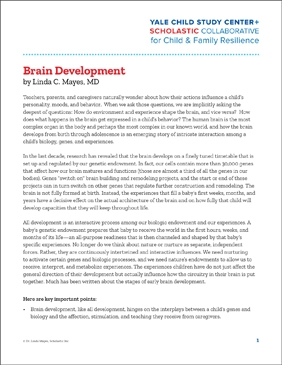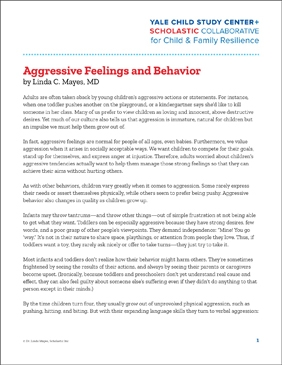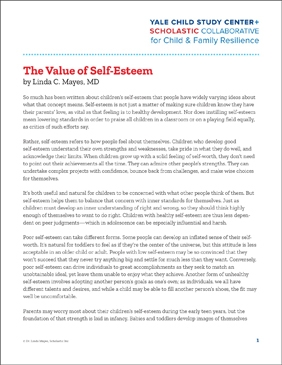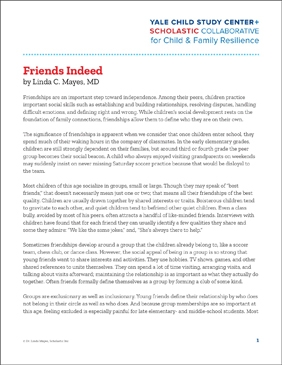Dr. Linda C. Mayes, M.D., is the Arnold Gesell Professor of Child Psychiatry, Pediatrics, and Psychology; Chair of the Yale Child Study Center; and a Distinguished Visiting Professor of Psychology at Sewanee, The University of the South. Dr. Mayes and her colleagues at the Child Study Center focus on the life-shaping experiences of infants, children and their parents and offer clinical treatment to thousands of families.
She is the author of The Educator's Guide to Understanding Child Development (available here), which is designed to inform educators' practice with a solid grounding in child development. Her articles for Scholastic Teachables support educators’ and families’ understanding of child development and the ways that they can support all children as they grow.
Below are featured printables by this author. To see all of this author’s resources, please click here.




